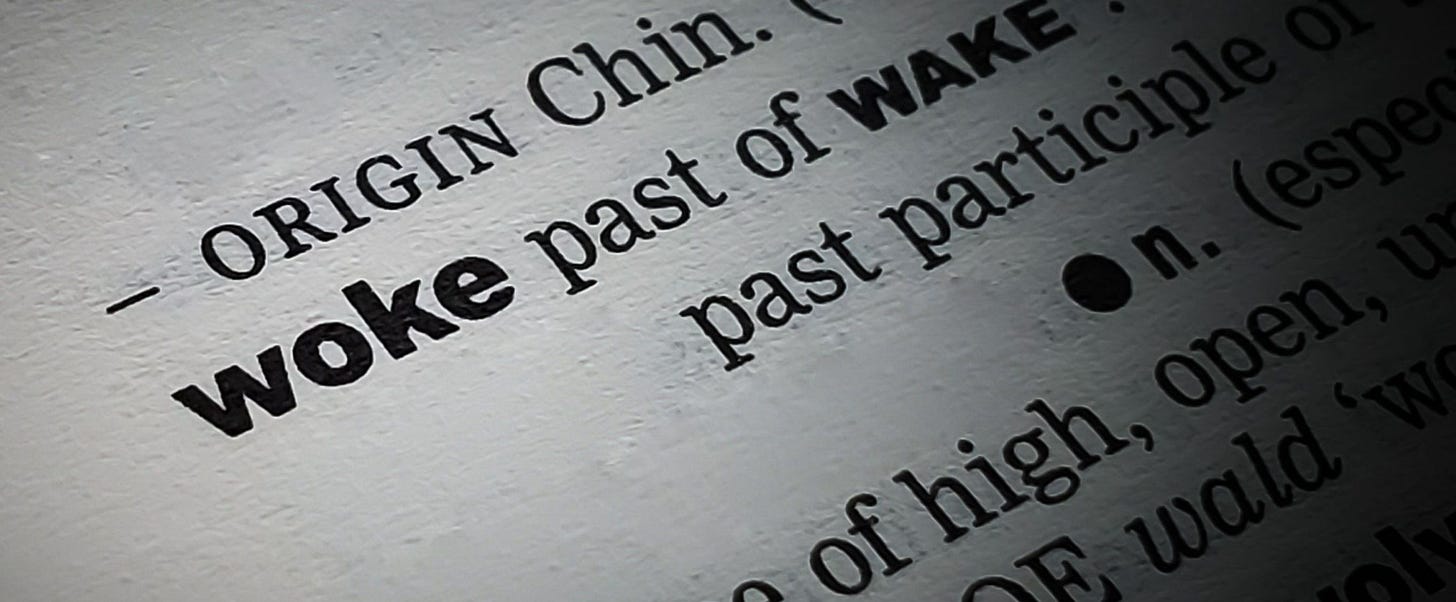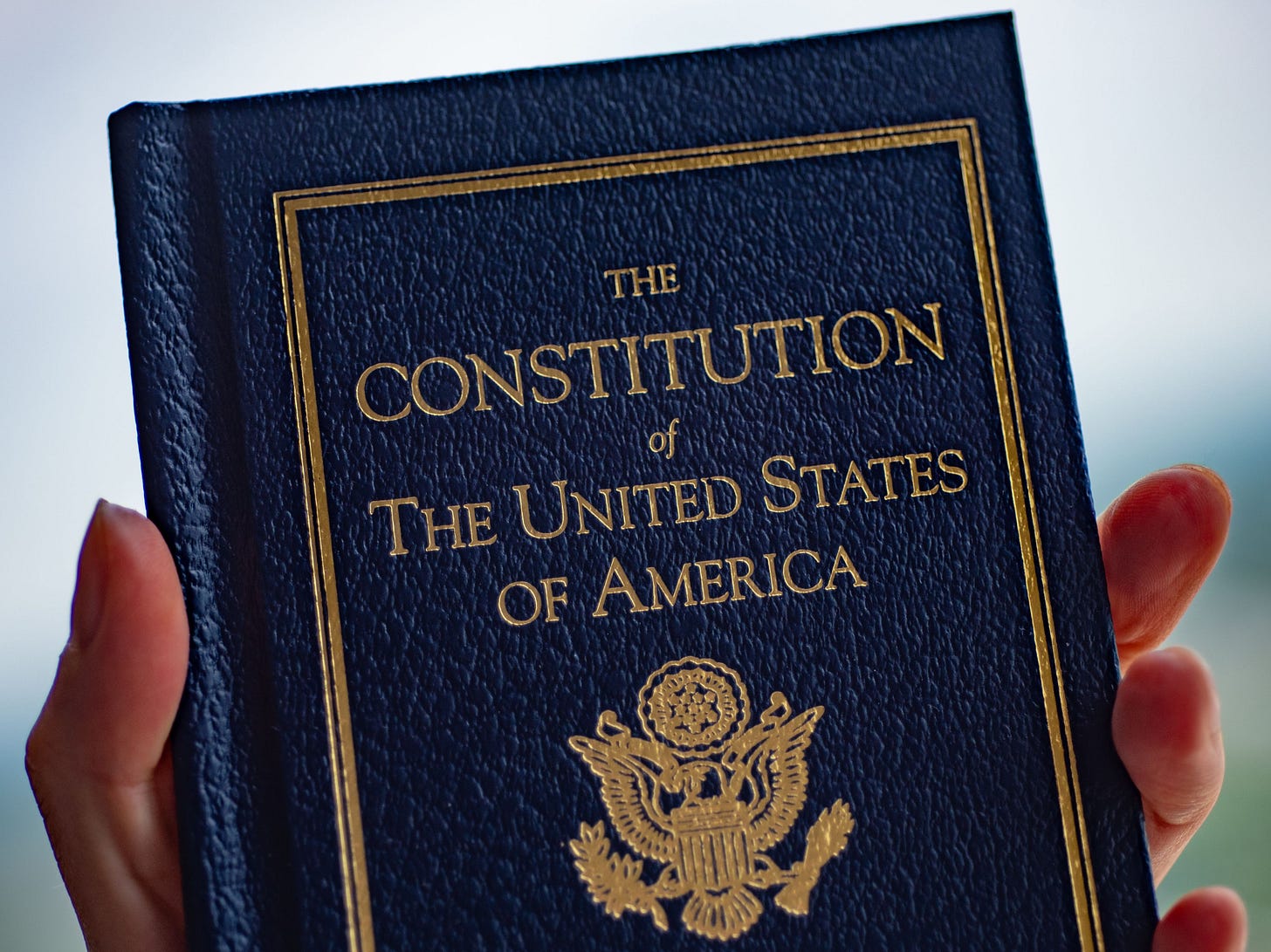E-Pluribus | March 23, 2023
What is a NCHI, anyway?; is "woke liberal" redundant?; and a student attempt to turn the free speech tables on his university.
A round-up of the latest and best writing and musings on the rise of illiberalism in the public discourse:
Noel Yaxley: A Modicum of Sense
From across the ocean, Noel Yaxley reports for City Journal that the British government is doing some welcome backpedaling on its speech laws. Home Secretary Suella Braverman has developed a plan to scale back recording “non-crime hate incidents (NCHI)” (yes, there really is an acronym for that) in deference to freedom of speech.
Under new plans announced by Home Secretary Suella Braverman, the police will be instructed to record non-crime hate incidents (NCHI) only when necessary, not simply when someone feels offended, and officers reporting them will have to give precedence to freedom of speech and expression over restrictions on offensive or insulting language.
Until this change, an NCHI was defined as anything that a victim (or any other person) perceived to be motivated by prejudice or hostility toward one or more protected characteristics. These include (but aren’t limited to) race, religion, sex, and sexual orientation.
[ . . . ]
If the home secretary is serious about focusing on important issues, she could work to roll back the Equality Act 2010 and reduce the U.K.’s ever-expanding list of protected groups. That would require pushing back on the the Law Commission—an independent body that reviews and recommends changes to the law—which has suggested extending protected-characteristic status to groups such as alternative subcultures, sex workers, and the elderly.
Meantime, while Great Britain has abolished blasphemy laws, one religion, Islam, remains protected from criticism. Four boys were recently suspended from Kettlethorpe High School for bringing a copy of the Quran into school and accidentally dropping it on the floor. Rumors spread that the holy book had been set ablaze, though the book was only lightly scuffed. It turns out that the 14-year-old boy who brought it into the West Yorkshire school did so on a dare. Still, the police were called, and the incident was recorded as an NCHI. The mother of the boy (who is reportedly autistic) received death threats.
Read it all.
Adam Serwer: Woke Is Just Another Word for Liberal
As seen last week in Around Twitter, Robert Tracinski posited that one of the reasons “woke” is difficult to pin down is its origin as a slang term. From his firmly left-wing perspective, Adam Serwer of The Atlantic agrees while also arguing that conservatives tend to simply use the term to mean “liberal.”
Much of the utility of woke as a political epithet is tied to its ambiguity; it often allows its users to condemn something without making the grounds of their objection uncomfortably explicit.
A few years ago, I wrote, “Woke is a nebulous term stolen from Black American English, repurposed by conservatives as an epithet to express opposition to forms of egalitarianism they find ridiculous or distasteful.” This is what people mean when they refer to “woke banks” or “woke capital,” when they complain that the new Lord of the Rings series or the new Little Mermaid is “woke” because it includes Black actors, or when they argue for a “great unwokening” that would roll back civil-rights laws. Part of the utility of the term is that it can displace the criticism onto white liberals who are insincere about their egalitarianism, rather than appearing to be an attack on egalitarianism itself. In fact, woke has become so popular as a political epithet that providing an exhaustive list of definitions would be difficult. It is a slippery enough term that you can use it to sound like you are criticizing behavior most people think is silly, even if you are really referring to things most people think of as good or necessary.
[ . . . ]
. . . Accepting the reality of American history and the persistence of discrimination does not mean that every egalitarian proposal is correct, nor that every egalitarian argument should be heeded. It does not necessarily mean that we should ban the SAT in college admissions or never refer to “women” when discussing abortion rights. Calling something racist or sexist doesn’t mean that what you are describing is racist or sexist. Conversely, something that appears to be race-neutral can be implemented in a discriminatory fashion, or even adopted with that intention. . .
Read it all here.
Bobby Miller: A Campus Free-Speech Case with a Dash of Irony
How much control should a university have over when and where speech may take place on campus? Bobby Miller of National Review writes that, at least in some cases, Arizona State University draws the line at tables, or at least where they are set up. The student involved, Tim Tizon, is currently appealing his conviction for trespassing.
In March 2022, Tim Tizon, then an ASU student, was arrested and convicted of trespassing after he had been distributing copies of the Constitution to other students from a table he set up on campus. On January 26, the Liberty Justice Center (LJC), the national law firm that litigated the landmark Supreme Court case Janus v. AFSCME, and whose stated aim is to “fight to protect government employees, students, families, and other Americans whose constitutional rights have been violated,” filed an appeal on his behalf.
Tizon, a member of the Young Americans for Liberty, a student organization, had set up a small table with the YAL logo in the North Plaza of ASU’s Tempe campus, away from most of the foot traffic, to make pamphlet copies of the Constitution available to students passing by. University officials approached him and claimed that his setup violated an ASU reservation policy that requires students to reserve space before tabling (that is, setting up a table on campus). When ordered to move to an isolated area elsewhere on campus, Tizon refused. He was subsequently arrested for trespassing, and university police removed him from the location.
Tizon was convicted of criminal trespassing in the third degree in University Lakes Justice Court and ordered to pay a fine and perform community service. LJC is now helping Tizon appeal his conviction in the Maricopa County Circuit Court, seeking to vindicate his right to free speech and expression on campus. Daniel Suhr, the managing attorney at LJC, says that “the actions taken against Tim are a clear violation of his First Amendment rights. Students have the right to express themselves freely on campus, and universities must respect this fundamental right. Case law from the Ninth Circuit clearly states that tables are an important adjunct to free speech and within the zone of protected First Amendment activity.”
Read the whole thing.
Around Twitter
Heterodox Academy is out with a new survey on college students and self-censorship:
In the wake of the recent debacle involving federal judge Kyle Duncan at Stanford Law School, Dean Jenny Martinez is getting high marks for her response:
And finally, via Christopher Rufo, White Fragility author Robin DiAngelo is out with the Euphemism of the Week, “affinity space”:













